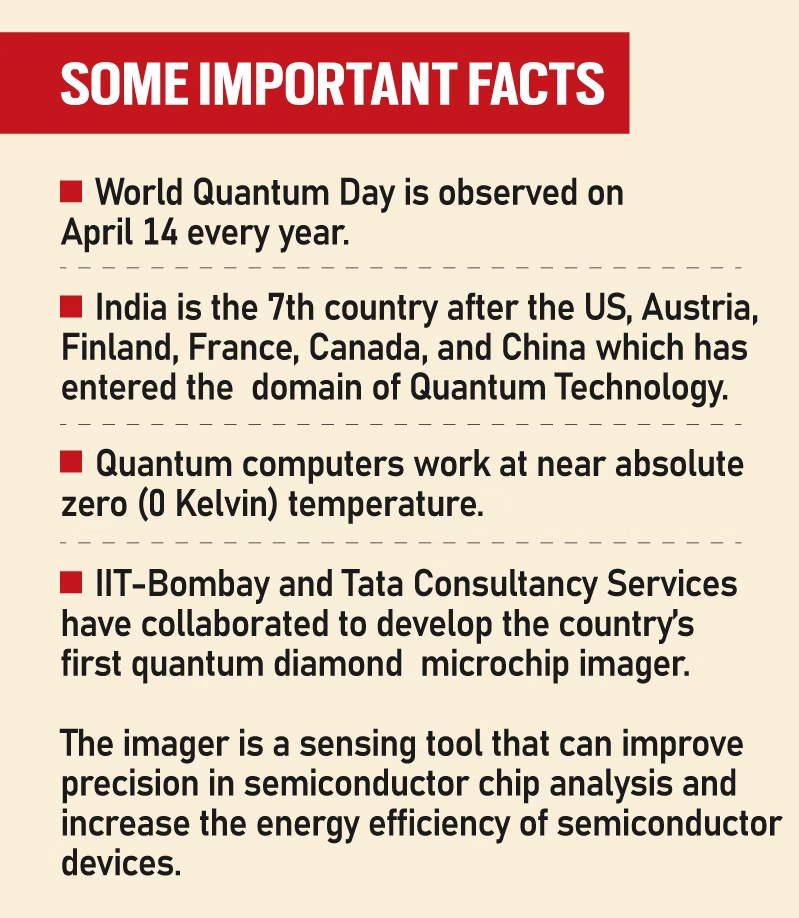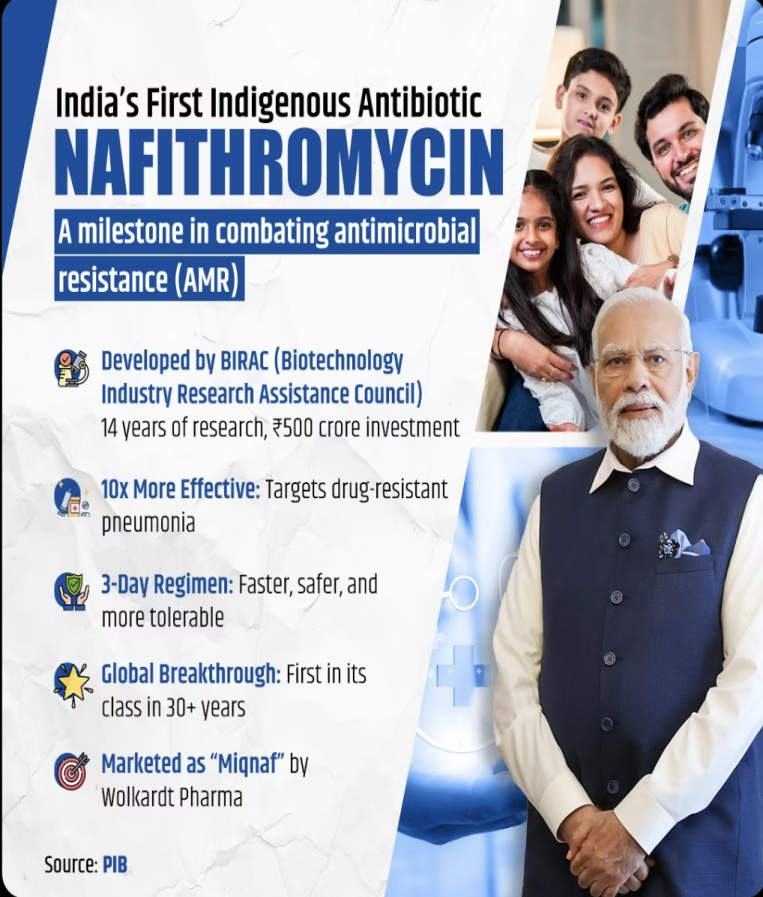GOI approved the National Quantum Mission (NQM), aiming to seed, nurture and scale up scientific and industrial R&D and create a vibrant & innovative ecosystem in Quantum Technology (QT).
This will accelerate QT led economic growth, nurture the ecosystem in the country and make India one of the leading nations in the development of Quantum Technologies & Applications (QTA).
The Mission objectives include developing intermediate-scale quantum computers with 50-1000 physical qubits in 8 years in various platforms like superconducting and photonic technology.
The Mission is aligned with various flagship initiatives of the country and can benefit fields such as health and communication. The National Quantum Mission is aligned with the following initiatives.
Digital India
The National Quantum Mission aims at making advancements in the field of quantum technology for effective computing and secure communication which would nurture a digitally empowered society, supporting the aims and ambitions of Digital India.
Make in India
The National Quantum Mission creates a niche for indigenous research and development (R&D), manufacturing, and investments in building quantum devices and related products. This will ensure self-reliance in the field of quantum technology.
Skill India
The National Quantum Mission encourages skill development in the field of quantum technologies through training and education, thus, preparing a trained workforce in this field.
Stand-up India, Start-up India
The National Quantum Mission stimulates innovation and entrepreneurship under its various verticals. This would support the growth of quantum-focused startups.
Self-reliant India
The National Quantum Mission aims at advancing quantum technologies within the country and promoting indigenous research. This would minimise over reliance on foreign resources.
Sustainable Development Goals (SDGs)
The goals of the National Quantum Mission also align with the SDGs. The Mission specifically aims to benefit from quantum technologies in tackling global challenges related to climate (SDG 13), energy (SDG 7), and healthcare (SDG 3).

How National Quantum Mission is expected to benefit different sectors
In addition, progress made in the field of the National Quantum Mission can benefit various sectors such as communication, health, energy and finance in different ways.
Communication
By enabling secure and secured encryption along with high speeds of data transfer, quantum technologies would be a game-changer in the field of communication.
Health
Quantum computing would significantly accelerate drug discovery and genomic research. Additionally, the quantum sensors would provide exceptional precision in medical diagnostics.
Financial
Quantum computing would also facilitate complex financial modelling and risk analysis through various optimization algorithms. Whereas quantum cryptography would enhance the security of financial transactions.
Energy
The computing strengths of quantum technologies could be used to improve the optimization of the energy grid and resource management. Lately, it has been found that quantum computing could provide solutions for complex problems related to energy efficiency.
Advanced material
Quantum simulations (simulating the behaviour of materials at the atomic level) can lead to the discovery of new materials with unique properties (such as superconductors, and advanced batteries) enabling advancements in energy storage, electronics, and manufacturing.
Issues and the way forward
There are areas that the National Quantum Mission needs to focus on such as investment, patents and industry-academia linkage. India is lagging behind countries like the US and China in terms of investment, publishing papers on quantum-related science, and registering patents.
Investment
While India has allocated 6,000 crores ($0.75 billion) for the National Quantum Mission, China is estimated to be spending $15.3 billion on quantum-related research and the US is investing about $3.75 billion.
Research
Similarly, in comparison to the US and China, India has fewer papers published on quantum-related science. Between 2000 and 2018, Indian researchers authored 1,711 papers, while Chinese researchers published 12,110 papers and American 12,110 papers. Among the 90 per cent of the authors, the US and China alone cover one-third. India is tenth in terms of papers published related to Quantum Technologies.
Industry-academia linkage
Collaborations between academic institutions, research organisations and industries can be strengthened for further advancements in Quantum Technologies.
Quantum manufacturing
In India, only about 3 per cent of deep tech start-ups are involved in the manufacturing or development of materials related to Quantum Technologies.
Skilled workforce
Sufficient pool of scientists, engineers, and professionals who have specialised in quantum mechanics, quantum computing, and quantum cryptography would boost efforts towards harnessing the potential of Quantum Technologies.
Thus, it can be summed up by saying that to accelerate progress in this field, a holistic approach should be taken. Research in this area would require building state-of-the-art laboratories, the purchase of advanced equipment, and long-term support.
Also, both the public and private sectors can come forward to fund research infrastructure and facilities through comprehensive investment models, which would contribute to advancing expertise and skill.
A collaborative research and development ecosystem would help integrate efforts across academia, industry, and government, while educational outreach initiatives to increase public awareness and industry-specific conferences to engage business leaders and investors would further aid such efforts.

